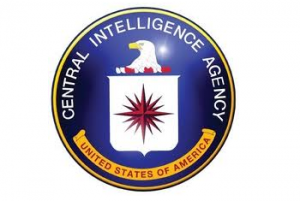By RyanKamauff
 Here are the top cyber news and stories of the day.
Here are the top cyber news and stories of the day.
- CIA invests in mobile security company to keep transactions under wraps – In-Q-Tel made a strategic investment and technology development agreement with Tyfone to “bring mobile security in cloud and NFC transactions to the U.S. government.” Agencies, such as the CIA, that are traditionally non-mobile and work in SCIFs have more to benefit from secure mobile capabilities than others. Via VentureBeat, more here.
- Team GhostShell hackers dump 1.6M records, the digital dirt on Pentagon, NASA, Interpol – The group of hacktivists executed their “#ProjectWhiteFox” and hacked and dumped 1.6M records on the open web. The Pentagon, Interpol, NASA and ESA were just a few of the sites affected. Via ComputerWorld, more here.
- VA, DoD plan to accelerate iEHR timeline – The VA and DoD are committing to having a plan to beat previous iEHR schedules. The integrated Electronic Health Record is designed to provide consistent electronic information between the VA and the DoD. The VA is also working hard to alleviate the records claim backlog. Via FierceGovernmentIT, more here.
- Worst security snafus of 2012 – ComputerWorld Malaysia exams some of the worst snafus of 2012. They include the Dropbox breach, Twitter attacks and more. The list is extensive so get your reading glasses on. Via ComputerWorld Malaysia, more here.
- Saudi Aramco says cyber attack targeted oil, gas flow – Saudi Aramco said on Sunday a cyber attack in August that damaged some 30,000 computers was aimed at stopping the Saudi Arabian national oil company’s oil and gas production. Saudia Aramco is the largest OPEC exporter and is responsible for around 10% of the world’s oil production. The attack used a virus called “Shamoon” which hit on the 15th of August. Via Investor Village, more here.
- CIO overhaul: Issa plan would reinvent how IT is managed – An ambitious plan is emerging in Congress that, if approved, would represent the most sweeping overhaul of the way agencies buy and manage information technology since the 1996 Clinger-Cohen Act, which created chief information officers at all agencies. This plan would redefine the definition of CIO as well within federal agencies. Via Federal Times, more here.


Leave a Reply
You must be logged in to post a comment.